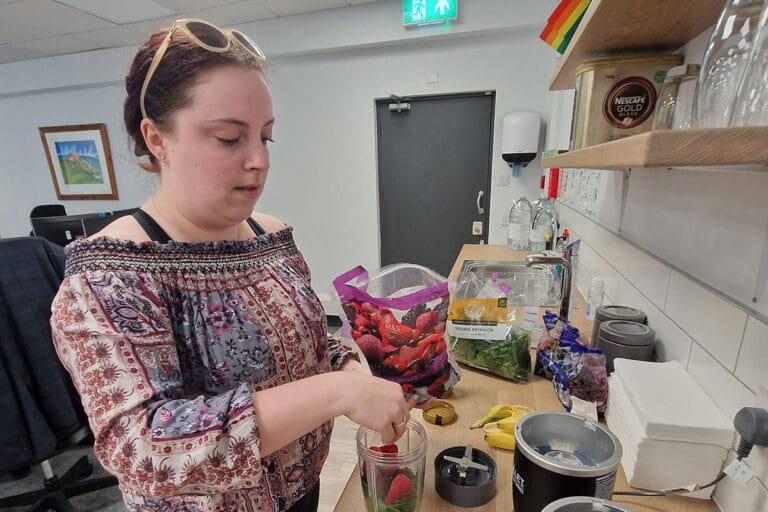New financial regulations came into place in Guernsey in mid-2023, giving a fresh outlook on the island’s financial landscape. Robbie Clayton, our Guernsey Branch Manager, offers his view on what these recent regulatory changes mean from a compliance perspective and, perhaps more importantly, how they aim to empower and protect individuals.
Managing change
Robbie has been with Close Brothers Group for nearly nine years, moving to Guernsey in 2022. This move was prompted by a desire for a new challenge after successfully managing the wholesale funding portfolio for the motor business across the UK, Channel Islands, and the Republic of Ireland.
“I was at a point in my career where I was ready to take the next step. Moving to Guernsey was a substantial change, both professionally and personally. But my network within the Group facilitated a smooth transition. With my experience, I was brought into the Guernsey branch to spearhead the maze of incoming consumer lending regulations”.
“While Guernsey has long been known for its robust financial services sector, consumer lending regulation was a new concept for the island. Having worked in the regulated environment in the UK throughout my career, I was well-versed in these dynamics. We had various technical and procedural updates to implement, and I was able to leverage my experiences and tap into the collective knowledge across the Close Brothers Group to ensure that our business is compliant with the new regulations.”
The specifics
Speaking on how the new law impacts the way lenders communicate loan terms, including interest rates, fees, and repayment schedules, Robbie said:
“One of the main aims of regulation is to make borrowing more transparent to consumers, allowing them to make an informed decision. It has created a level playing field across lenders which means that when they are providing quotes to consumers, there is a consistent approach, and the applicant is able to understand exactly what it will cost them.”
Prior to regulation, consumers could be quoted a variety of interest rate types from different lenders, making it extremely difficult to compare quotes and make the best decision for their circumstances. In the new Lending, Credit and Finance (Bailiwick of Guernsey) Law, interest rates for all lenders must be quoted in an Annual Percentage Rate (APR) format. This APR gives the consumer the actual cost of their borrowing and allows them to easily compare deals to find the right one for their circumstances.
“It’s important to note that sometimes the right deal isn’t always the cheapest on offer. Consumers need to consider the service that they will receive as well as the other key parts of their loan terms. To assist with this, every consumer will be given a pre-contract document as well as a key facts sheet which highlights the main terms of the loan.”
This is a significant shift towards consumer empowerment, reinforced by another crucial element: the affordability assessment. In the current climate, consumers’ concerns over the ongoing affordability of their loans is common.
“As a responsible lender, we want to ensure that the loan will remain affordable for the life of the agreement, not just at the time of signing”. “This means that we may ask for additional supporting documents such as bank statements or payslips, ensuring that we reach the right decision for the consumer and their individual needs.”
This new law has been designed not only to support the consumer, but also to protect them. Imposing a maximum cost of credit, and ensuring lenders have clear guidelines for assessing affordability are just some of the crucial factors that have been put in place to prevent all customers, including those who are potentially vulnerable from falling into financial distress.
Commenting on short-term or ‘payday’ loans, Robbie said:
“Sometimes we would see consumers with imperfect credit ratings in need of short-term support, which is potentially where this type of lending could be beneficial; however, this needs to be done responsibly to ensure that the lender is not worsening the consumers’ financial position.”
“By regulating the level of interest chargeable and ensuring the appropriate level of support for vulnerable customers, the legislation is designed to ensure that lenders treat all customers fairly and deliver the best customer outcome. This was particularly important throughout the Covid-19 pandemic when a number of consumers were experiencing payment difficulties, but there remains a place for this forbearance support. As a responsible lender, we assess an individual’s circumstances and seek to tailor the support to their specific needs.”
Awareness, supervision, and enforcement
Elaborating on the resources and channels available for consumers to better understand their rights and navigate the complexities of the new regulations, Robbie emphasised that consumer outreach is crucial.
“For general information, consumers can head to the Guernsey Financial Services Commission (GFSC) website and look at the details under the Lending, Credit and Finance section.”
The GFSC is responsible for the issuing and monitoring of lending licences across the Bailiwick, and it has a dedicated team that reviews licensees and requires regular information on how regulated entities perform and support customers. Ultimately, it has the power to revoke licences and issue potential sanctions should a licensee breach any part of the law. If a licence is revoked, an entity would not be able to provide lending to regulated consumers, so the incentive is for them to retain their licence to operate.
Robbie concluded that:
“Consumers considering entering into a finance agreement should ensure that they read and understand their key facts information document, as well as the full agreement terms and conditions beforehand. More importantly, if they have any questions, they shouldn’t hesitate to ask for further information or explanations and should only sign the agreement when they are happy that they understand all the terms of the loan. It’s about keeping people safe and well, protecting their financial wellbeing which in turn looks after their mental and physical wellbeing.”





